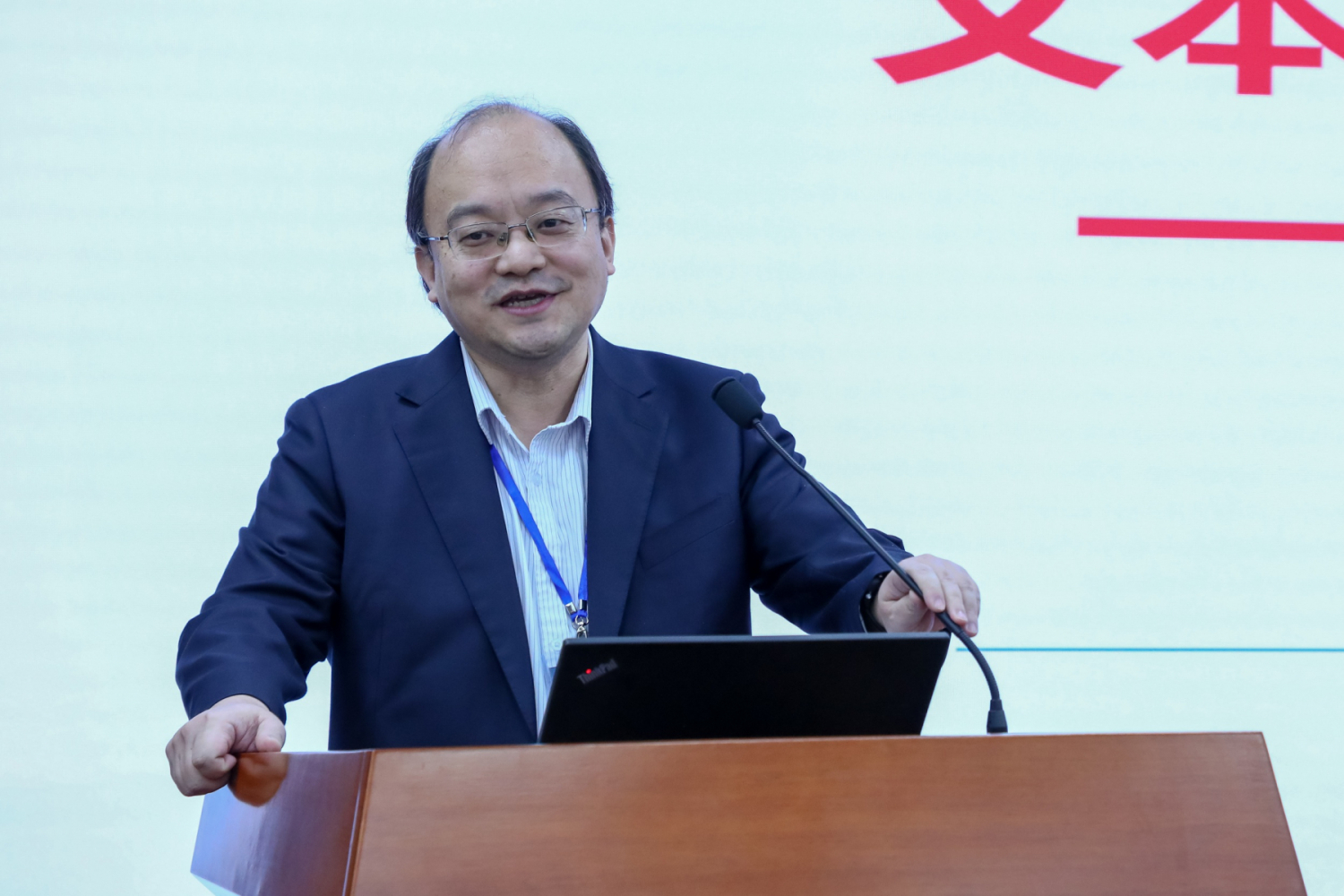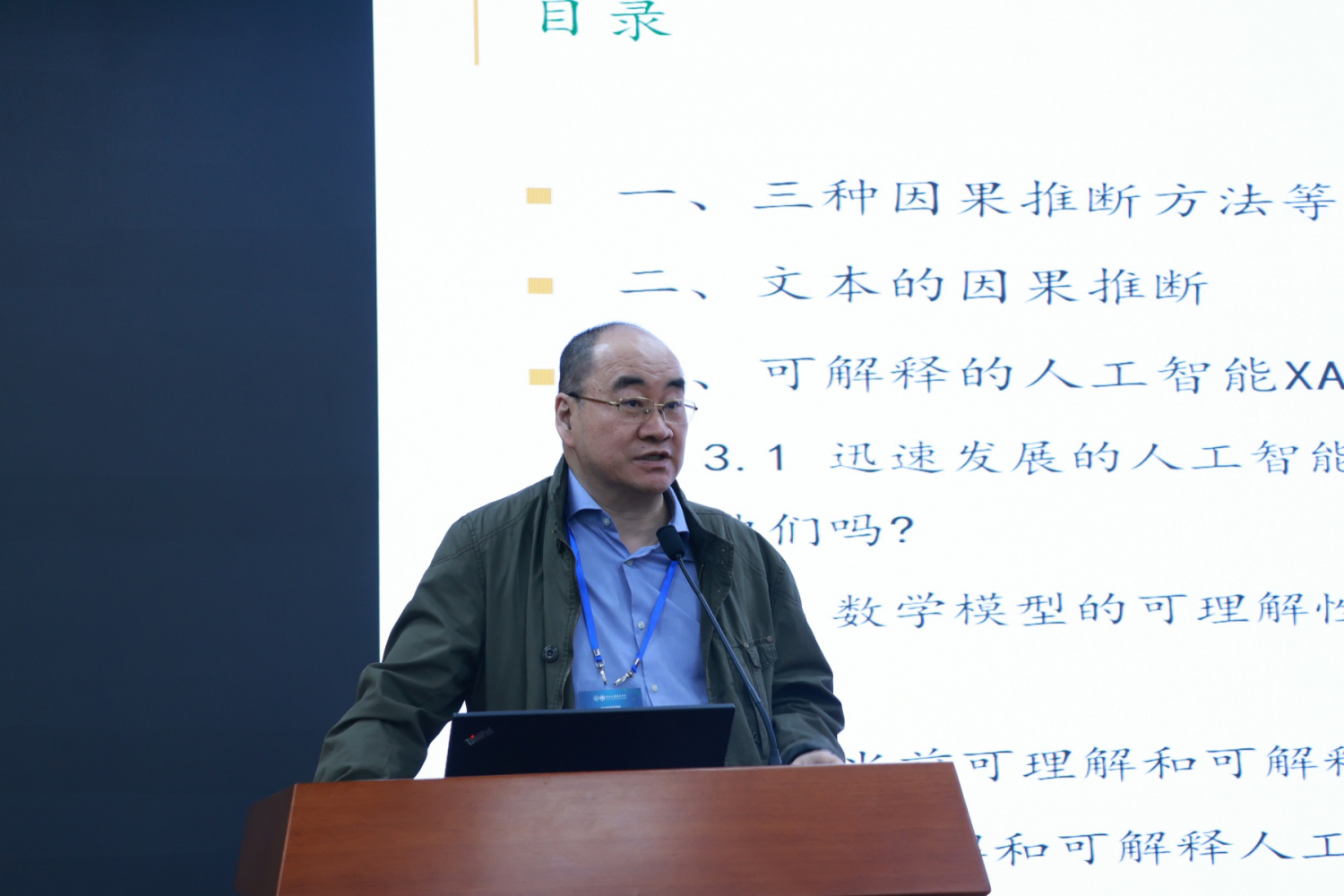First "Big Data Econometrics Theory and Application" Seminar of China Journal of Econometrics Successfully Held in Lingnan College of Sun Yat-sen University
From March 4 to 5, 2023, the first "Big Data Econometrics Theory and Application" seminar co-sponsored by the editorial department of China Journal of Econometrics, NSFC "Econometric Modeling and Economic Policy Research" Basic Science Center, and Lingnan College was successfully held in Lingnan College of Sun Yat-sen University. The seminar attracted experts and scholars from Chinese Academy of Sciences, University of Chinese Academy of Sciences, Peking University, Renmin University of China, Fudan University, Shanghai University of Finance and Economics, Tsinghua University, Zhejiang University, Shandong University, Xiamen University, Hunan University, University of Electronic Science and Technology of China, Huazhong University of Science and Technology, Jinan University, Central University of Finance and Economics, and many other universities and scientific research institutions to Guangzhou for academic exchanges and promoting the development of big data econometrics as a discipline. The seminar arrested widespread attention. It was broadcast live on 51xueshuo.com and won more than 20,000 views.

Group Picture
In recent years, the digital economy and data science have entered the "fast track" of development, and the seminar on big data econometrics was held at the right time. On the one hand, digital technology innovations such as big data, artificial intelligence, and cloud computing have profoundly changed the development pattern of traditional industries. To utilize big data to drive forward the high-quality development of the real economy is an important development direction in the future. On the other hand, with the advent of the era of big data, economics, data science, computer science and other disciplines are integrating at a faster pace. Big data and artificial intelligence are profoundly changing the research paradigms of social sciences such as economics, finance and management.
The opening ceremony on the morning of March 4 was hosted by Professor Lin Jianhao, Deputy Dean of Lingnan College of Sun Yat-sen University. Professor Li Shanmin, Dean of Lingnan College, and Professor Hong Yongmiao, Dean of the School of Economics and Management, University of Chinese Academy of Sciences and co-editor-in-chief of China Journal of Econometrics, delivered welcoming speeches respectively. Li Shanmin expressed his warm welcome and gratitude to counterparts from all walks of life for their participation. He illustrated the development history of Sun Yat-sen University, and how Lingnan College, based on the great practice of China's economic development in recent years, is committed to building a knowledge system of economics unique to China and continuously promoting the innovation of economic theory. He would like to sincerely invite academic talents to Lingnan College as it insists on talent-driven development, aims to create a working atmosphere to "please those near and attract those from afar," and looks forward to growing together with outstanding scholars. Professor Hong Yongmiao expressed his heartfelt thanks to Lingnan College for organizing the seminar. He described the founding of China Journal of Econometrics, hoping to promote the development of economics research in China by holding seminars. He also emphasized that with the current explosive growth of unstructured data, the importance of text data is increasingly highlighted, which led to the topic of the seminar "Text Data Analysis and Its Application". Professor Hong hoped that all participating scholars would have in-depth interaction and exchanges during the one-and-a-half-day meeting, and jointly promote the shaping of a scientific and truth-seeking style of study.

Professor Li Shanmin

Professor Hong Yongmiao

On site of the conference
There were six specially invited reports in three periods in the seminar. The first session was hosted by Professor Hong Yongmiao. Wang Shouyang, a researcher, Director of the CAS Center for Forecasting Science, and an academician of the World Academy of Sciences for the Advancement of Science in Developing Countries, and Zeng Dajun, a researcher of the Institute of Automation, Chinese Academy of Sciences, delivered keynote speeches respectively. Wang Shouyang delivered a speech on "Econometric Modeling and Analysis of Text Data". Wang Shouyang first illustrated the exchange rate forecast research based on online foreign exchange news sentiment mining from four aspects: research significance, sentiment analysis related theories and technologies, exchange rate forecast method framework, and empirical results; then, he further explored whether adding public opinion information can effectively improve exchange rate forecasting results and other important issues; finally, the course construction around "Complex Data Modeling and Analysis Methods and Their Applications" was stated. Zeng Dajun delivered a speech titled "Modeling and Understanding Text Data: A Social Computing Perspective". He started with the development of text representation, illustrated how text analysis technology has developed into the era of large models represented by ChatGPT, and then elaborated on the text analysis technology system and its application. Finally, Zeng Dajun explained the text analysis in social computing, and discussed the possible development direction of interaction with econometric methods.

Wang Shouyang

Zeng Dajun
In the second session, the invited report was chaired by Professor Hu Yi from the School of Economics and Management, University of Chinese Academy of Sciences. Cheng Bing, a researcher at the Academy of Mathematics and Systems Science, Chinese Academy of Sciences, and Professor Zhang Xiaoyan, Deputy Dean of the PBC School of Finance of Tsinghua University, delivered keynote speeches. Cheng Bing shared views on the topic of "Causal Inference and Understanding of Text, and Artificial Intelligence with Comprehensible Interpretation". Cheng Bing first talked about the three current mainstream causal inference methods and their equivalence, and then highlighted rule-based text causality extraction and probabilistic causal inference. Finally, he elaborated on the current state-of-the-art in understandable and explainable artificial intelligence, and introduces to the audience a new method of geometric topology related to it. Professor Zhang Xiaoyan shared her research results on the topic of "How Social Media Affects Price Formation and Price Discovery: Reddit as an Example". The research aimed to solve three questions: Does social media influence investor's opinions? Does social media affect price discovery in stock market? How are different market players coping with the changes in social media? Professor Zhang Xiaoyan used the data from Reddit in 2020-2021 to conduct research on the above issues, and tested the theoretical predictions of social media and stock prices.

Professor Hu Yi

Cheng Bing

Professor Zhang Xiaoyan
In the third session, the invited report was hosted by Professor Zhou Xianbo from Lingnan College of Sun Yat-sen University. Professor Zhou Yinggang, Dean of the School of Economics and the Wang Yanan Institute for Studies in Economics of Xiamen University, and Professor Lin Jianhao, Deputy Dean of Lingnan College of Sun Yat-sen University, delivered keynote speeches. Professor Zhou Yinggang shared his research on the topic of "Investor Sentiment, Extrapolative Beliefs, and Cryptocurrency Returns". The research mainly explored the impact of investor sentiment on the future yield of cryptocurrencies, and found that investor sentiment can help predict the future yield of cryptocurrencies. The higher the past yield, the more optimistic investor sentiment, indicating that investor sentiment is influenced by past yields. Professor Lin Jianhao shared his latest research titled "The Media Ambiguity Premium: A New Perspective on Monetary Policy Uncertainty". The research used China's media coverage of monetary policy as a proxy for market players' monetary policy uncertainty, and distinguished between risk and ambiguity. It is found that media ambiguity has a significantly negative cross-sectional risk premium, and that media ambiguity can be largely explained by the ambiguity of different media types.

Professor Zhou Xianbo

Zhou Yinggang

Professor Lin Jianhao
On the morning of March 5, as an important achievement of the first "Big Data Econometrics Theory and Application" seminar and proposed by Wang Shouyang, the "Guangzhou Kangleyuan Initiative - Big Data Econometrics Academic Alliance Building Initiative" was jointly put forward by the School of Entrepreneurship and Management of Shanghai Tech University, School of Economics, Wang Yanan Institute for Studies in Economics, and Paula and Gregory Chow Institute for Studies in Economics of Xiamen University, School of Economics and Management of University of Chinese Academy of Sciences, CAS Center for Forecasting Science, and Lingnan College of Sun Yat-sen University. The initiative aims to promote the establishment of a cross-university alliance in big data econometrics, propel the construction of big data disciplines, coordinate and optimize the resources of all parties, and build a world-leading teaching and research alliance system in big data econometrics with Chinese characteristics, thereby pushing forward cross-university big data econometrics related course construction, talent training and academic cooperation.

Academic reports were given in 9 sub-forums at the seminar. Centering on the theme of "text data analysis and its application", frontier issues in corporate finance were discussed such as text sentiment and asset returns, big data and digital government construction, fintech and risk regulation, media information and macro forecasting, text data and environmental economics, and text information and corporate behavior. During each sub-forum, the speaker comprehensively and profoundly displayed the relevant research results. The reviewers shared their unique insights on the article, and the audience asked questions and made exchanges. During the one-and-a-half-day seminar, experts and scholars vigorously communicated and jointly drew a new blueprint, explored new paths, and contributed new wisdom for the development of text data analysis methods and their application to economics.








